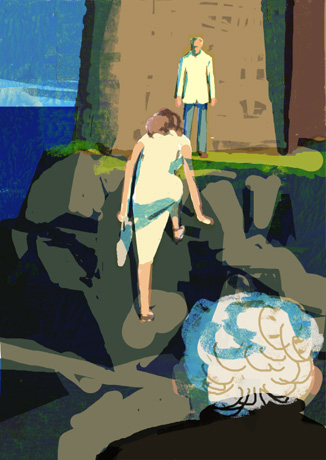

His peace is broken, however, by the unwelcome visits from the people of his past - not to mention ghosts and sea serpents (see it in the book cover?). The firs tpart of the novel is very much a day-to-day recitation of events - though, thanks to Murdoch’s insight and wit, even the food is interesting and important to developing Arrowby, who catalogs what he’s eating and how he prepared it as if we all should take note of how a great man eats his potatoes. So, after retiring from a life of fame in the theater, Arrowby moves to a small home by the sea and begins to write his memoirs.

She’s dead now, and in this fashion Arrowby decides his story is important enough to record for everyone, that since it was profound for him, it must be profound for all. At the beginning of the novel, he intends to tell his life story, focusing on his tumultuous love affair with Clement Makin, a powerful woman who seems to have controlled him. Here we have the memoirs of Charles Arrowby. I was drawn to her straight-forward yet elaborate prose, her fine rhythm, all bolstered by her expertise in psychology - psychology as a dark art, that is (which I hear she used against her husband frequently). This was my first time with Iris Murdoch, and I see why she was shortlisted for the Booker so many times during her career. I had heard of her, but I knew next to nothing about her except that she’d won the Booker Prize for this book. While perusing books, I came across The Sea, the Sea by Iris Murdoch.


 0 kommentar(er)
0 kommentar(er)
